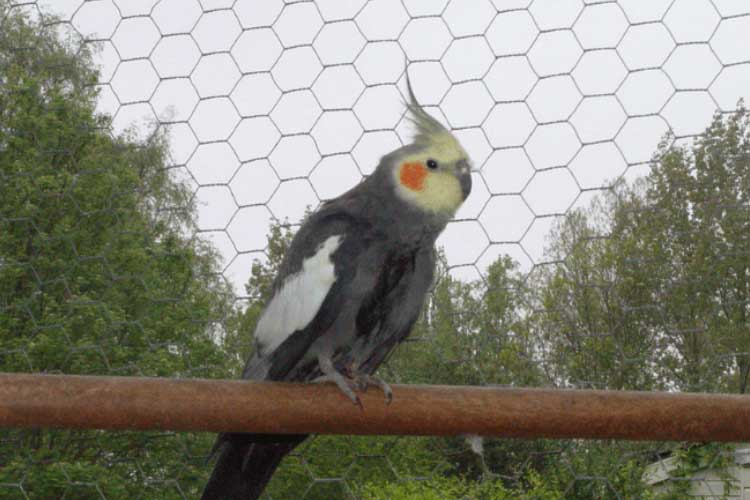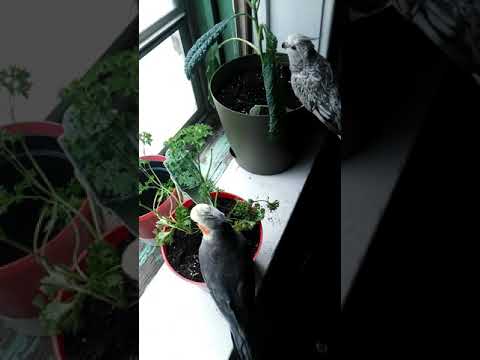There are so many types of parrots around the world, among them, cockatiels are a very popular choice as pet birds. Do you want to know why? Perhaps it’s not only because of their attractiveness but also their healthy diet and ability to consume almost anything, especially veggies.
Now the question is, can cockatiels eat kale? Yes, cockatiels can eat kale. They love almost every leafy green vegetable, but kale is very healthy, nutritious, and one of the best addition to their diet.
But there’s more about Cockatiels eating kale! So, keep reading to know how much kale should cockatiels eat, how to prepare kale, and how can you feed kale to baby Cockatiels.
Can You Feed Kale to Cockatiels?
Yes, you can give kale to your cockatiels in various ways. Kale can be fed as a meal or as a weekly treat to your pets. It maintains a balance of good tastes and essential nutrients simultaneously.
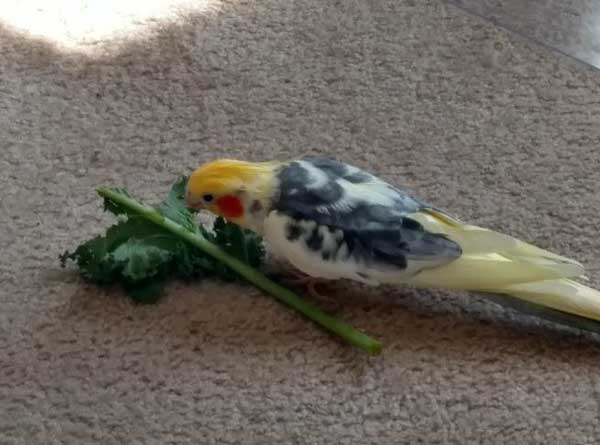
Kale leaves are high in calcium, vitamins, and fiber, all of which are beneficial to their health. It also contains minerals that promote bone health. Although kale is high in minerals, it is also low in calories, making it an ideal supplement to your bird’s diet.
Do Cockatiels Like Kale?
Leafy green vegetables are often the favorite snacks of a cocktail, and kale is no exception. Vegetables, fruits, and greens can make up about 20 to 25% of their daily diet. Although your cocktails are unaware of its innumerable nutrients, they love to eat kale because of its taste and freshness.
Health Benefits For Cockatiels Eating Kale
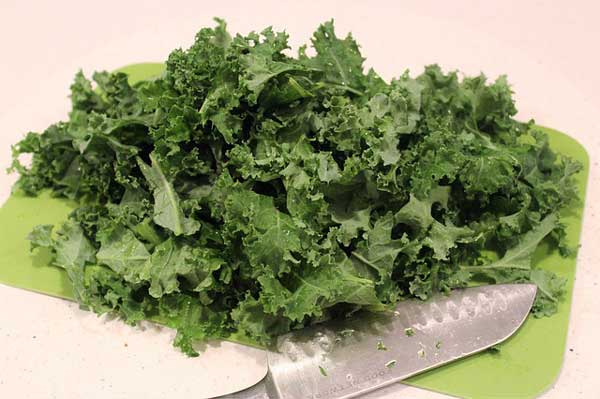
There are countless health benefits for Cockatiels eating Kale:
- Kale is high in vitamin A and K, which promote a healthy immune system
- It’s also rich in dietary fiber, that’s essential for your cockatiel’s digestive system to function correctly
- Kale also provides cockatiels with a lot of vitamin C, which helps them fight illnesses
- Kale contains vitamin B6, which reduces stress and improves brain health in Cockatiels
- Iron and potassium in Kale help diabetic Cockatiels maintain their blood sugar levels appropriately
- Kale has a lot of calcium that your cockatiels need for healthy bones and a strong beak
How Much Kale Should Cockatiels Eat?
According to research, cockatiels have a good sense of taste. That means, how much they will eat may depend on their taste. On the other hand, Cockatiels are considerably larger than little parrots.
So their bodies are able to handle a greater quantity of kale. To keep the balance of other fruits and vegetables in your cockatiel’s diet, feed 6 to 8 grams of kale 1-2 times each week.
Here is a video of a cockatiel eating kale.
How Do You Prepare Kale For Cockatiels?
Since kale has more calcium, cockatiel can be fed about one cup of kale daily, and you can serve it as a salad or even cooked. However, thick stalks should be removed from the black leaves before feeding.
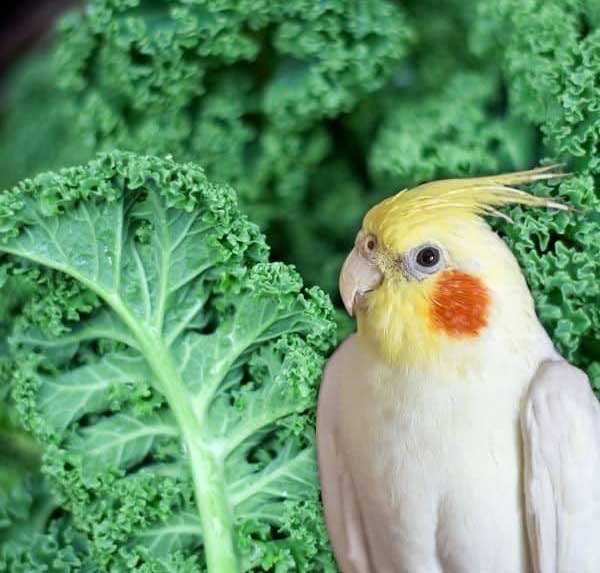
Let’s check what kind of kale cockatiels can consume;
Raw kale: Serving raw kale to your parrot can make a delicious supper. It’s also simple to make, and only wash it to remove any potential pesticides. Then chop it into smaller pieces so your cocktail doesn’t have to work too hard to consume.
Cooked kale: These veggies can also be served cooked or steamed. If wholly cooked, it can even lower oxalic acid. This suggests that you should feed your young parrot more kale. Cooking kale, on the other hand, can lower its nutritious worth.
Kale Flakes: It can also be a tasty snack. If you buy it from a store, read the ingredients on the packaging. Because garlic or excessive salt is difficult to digest for a cocktail, and Cocktails will devour it unless it’s your standard off-season kale flakes.
Kale juice: Kale can be served as a healthy juice too. But be sure your Cockatiel doesn’t drink it too much in a day. Because foods containing water will pass through them.
However, take in mind that additional ingredients in the juice include a lot of sugar. As a result, it is best to minimize your cocktail consumption, and it should be avoided because it can lead to excessive weight gain.
Can You Feed Kale to Baby Cockatiels? If so, How?
A baby cockatiel can be feed kale after one month. Try soft food first, and then start feeding pellets and seeds. For morning breakfast, some warm, soft foods can be prepared.
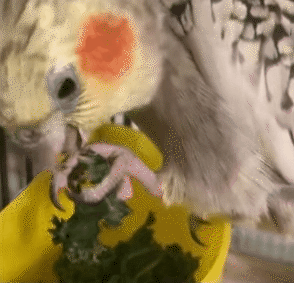
Brown rice can be cooked with chopped kales, and preparing this combination should be necessary. There is no need to mash this food; cooking it perfectly will be perfect for Cockatiel.
Can Cockatiels Eat Cooked Kale?
Yes, Cocktails like to eat cooked kale. However, you may observe the cooking process. Too much oil, even a little amount of spices, can be hazardous to your cockatiel. If your kale can consume raw kale, then avoid cooking it. Because unless your cockatiel calls for it, there’s no clear benefit to doing so.
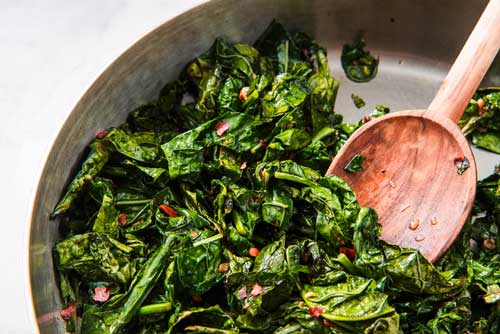
FAQ
You still may have some lingering questions. In this portion, we answer a few most asked questions regarding the topic.
The best way to emulate Cockatiels’ natural diet is to feed them fresh plant-based foodstuffs like fruits and vegetables. So, providing cockatiels with raw kale is an excellent option for them.
No, kale is not harmful to cockatiels. They enjoy it, and it is highly beneficial to their health.
Outro
Like other parrots, Cockatiels shouldn’t be forced to eat any food that doesn’t taste nice. What you’re searching for is a well-balanced diet plan. If you find everything that perfectly works for your pet Cockatiels, stick with it; this will ensure that your cockatiels live a long and healthy life.
Do you know if your cockatiels can eat popcorn or cucumbers? Read our articles about it to learn more.
